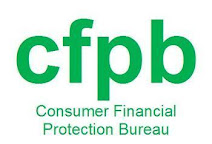HOW TO REPORT HOUSING DISCRIMINATION WITH HUD
https://www.hud.gov/fairhousing/fileacomplaint
If you believe your rights may have been violated, the U.S. Department of Housing and Urban Development (HUD) encourages you to report housing discrimination. Because there are time limits on when an allegation can be filed with HUD after an alleged violation, you should report housing discrimination as soon as possible. When reporting housing discrimination, please provide as much information as possible, including:
- Your name and address.
- The name and address of the person(s) or organization your allegation is against.
- The address or other identification of the housing or program involved.
- A short description of the event(s) that cause you to believe your rights were violated.
- The date(s) of the alleged violation.
What is Housing Discrimination?
Discrimination under the Fair Housing Act (including housing that is privately owned and operated) is:
- Discrimination in renting or buying a home, getting a mortgage, seeking housing assistance, or engaging in other housing-related activities.
- Discrimination on the basis of: race, color, national origin, religion, sex (including gender identity and sexual orientation), familial status, disability).
You can Report Housing Discrimination with HUD
ONLINE in English (also available in Español, 中文, Tiếng Việt, 한국인, العربية, Русский, ខ្មែរ, and Soomaali).
BY PHONE. HUD speaks your language! Talk with a HUD intake specialist by calling: 1-800-669-9777. You can also call your regional FHEO office at the phone numbers on this list.
BY MAIL. You can print out this form (also available in Español, 繁體中文, Tiếng Việt, 한국인, عربي, Русский, ខ្មែរ, and Soomaali) and mail it to your regional HUD office at the address on this list.
Assistance for Persons with Disabilities
Assistance for Persons with Limited English Proficiency
Retaliation Is Illegal
It is illegal to retaliate against any person for making an allegation, testifying, assisting, or participating in any manner in a proceeding under HUD’s allegation process at any time, even after the investigation has been completed.
It is illegal to retaliate against any person because that person reported a discriminatory practice to a housing provider or other authority.
The Violence Against Women Act (VAWA) also makes it illegal for a public housing agency, owner, or manager of housing assisted under a VAWA covered housing program to retaliate against someone for seeking or exercising VAWA protections for themself or another. This includes protection for people who testify, assist, or participate in any VAWA matter on their own, or another’s, behalf.
If you believe you have experienced retaliation, you should report housing discrimination!
Types of Allegations Investigated
HUD investigates allegations, which may be one or both of the following:
(1) Discrimination under the Fair Housing Act.
Additional Resources
 Learn About the Reporting Process
Learn About the Reporting Process
 Get Help Before Reporting Housing Discrimination
Get Help Before Reporting Housing Discrimination
 Reporting in Languages Other than English
Reporting in Languages Other than English
 Housing Discrimination Under the Fair Housing Act
Housing Discrimination Under the Fair Housing Act
 HUD Multifamily Housing Complaints
HUD Multifamily Housing Complaints
 Housing Choice Voucher and Public Housing Complaints
Housing Choice Voucher and Public Housing Complaints
*****
Source of Information: HUD’s Office of Fair Housing and Equal Opportunity.











